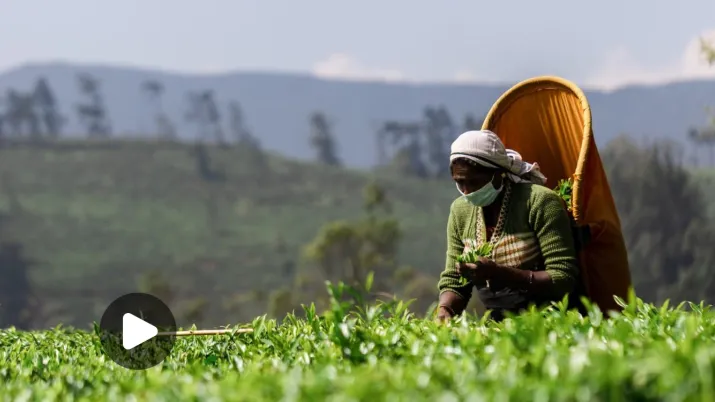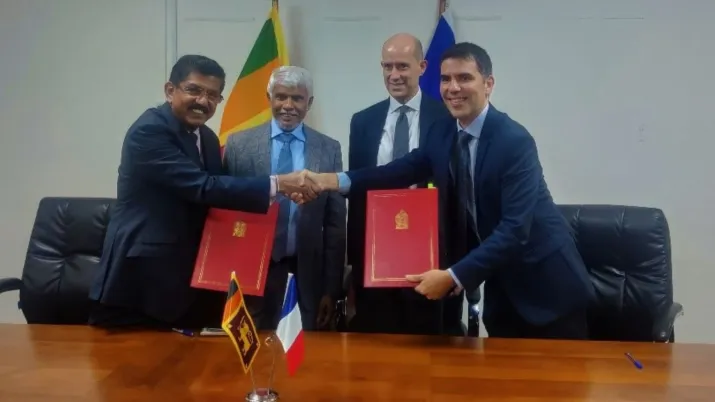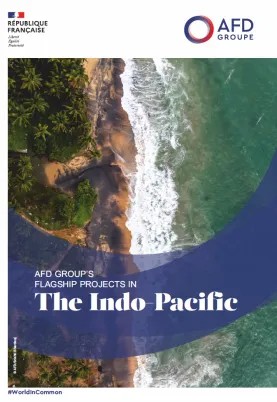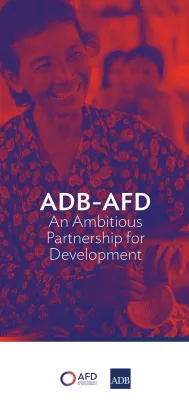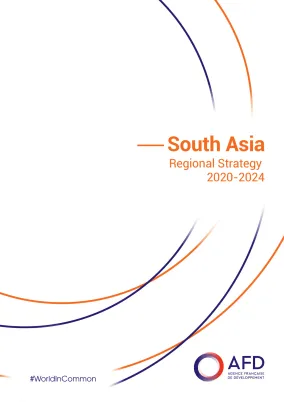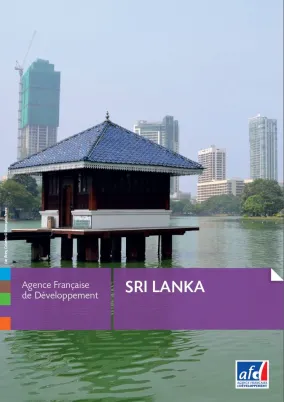Share the page
Sri Lanka
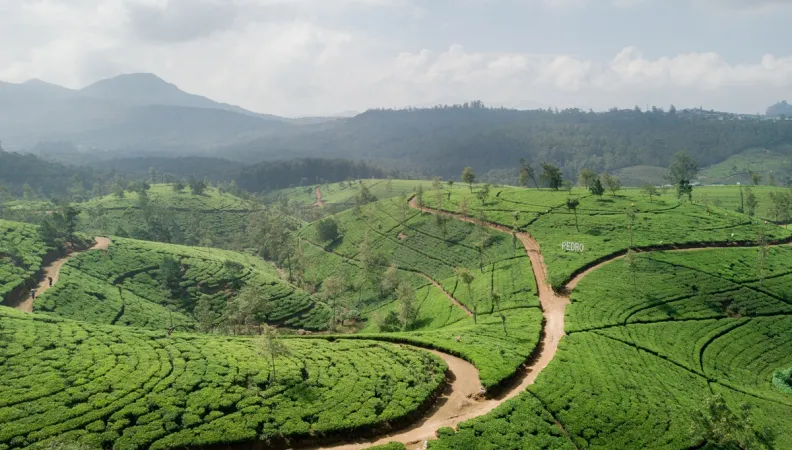
An island nation in the Indian Ocean, Sri Lanka has experienced consecutive shocks since 2019, leading to a difficult social and economic crisis, marked by the Sri Lankan state declared in default of payment in 2022. These years of crisis have partially wiped out the progress previously made in the fight against poverty. Today, the country is in a stabilization phase and must more than ever find a path to a fair and equitable development and adapt to the consequences of climate change. AFD has been supporting Sri Lanka on this journey since 2005.
Context
An island nation in the Indian Ocean, located southeast of India, Sri Lanka boasts an exceptional natural and cultural heritage. The country has a population of 22 million people.
Scarred by nearly 30 years of civil war and the devastating 2004 tsunami, Sri Lanka managed to return to a path of growth (4.4% in 2016) and improved living conditions for its population, with significant progress in health, education, and poverty reduction.
However, as from 2019, the country was hit by a series of major shocks – health, political, and economic – and in 2022, the Sri Lankan state was declared in default of payment. Since then, the island has gone through politically and economically challenging years.
Today, Sri Lanka is almost stabilized and has been led by a new government since autumn 2024, which now faces multiple challenges. The country is experiencing rapid urbanization, and its limited economic diversification does not provide enough opportunities for its youth, many of whom choose to emigrate. Poverty levels are higher than they were five years ago, particularly in rural areas. Moreover, with over 1,000 km of coastline, Sri Lanka is highly vulnerable to climate change.
Present in the country since 2005, initially through post-tsunami recovery efforts, AFD supports the government in addressing the challenges of inclusive development and climate adaptation. AFD mainly provides sovereign loans, but also operates through grants from the European Union and the French government. It also works in partnership with other development actors such as the Asian Development Bank, the World Bank, and GIZ.
The AFD Sri Lanka office operates under the South Asia Regional Directorate.
Our approach
"AFD and Sri Lanka: Encouraging Green Growth and Adapting to Climate Change"
While the country is not yet overwhelmed by large-scale urbanization, cities are growing fast and struggling to provide essential services to the population. And there is considerable pressure on the natural and cultural heritage, especially along the coast.
Aware of the need for better urban development planning so as to meet the needs of urban dwellers better, the government is developing a system of competitive and environmentally friendly secondary cities, among other things.
AFD supports these initiatives by financing:
- A more sustainable and energy-efficient drinking water network in the capital city of Colombo, along with the Asian Development Bank
- An investment program for the city of Anuradhapura, the former capital of Sri Lanka, to enhance its attractiveness.
A biodiversity hotspot, Sri Lanka is endowed with extraordinary natural resources. Preserving this heritage is a key issue for the country. As a signatory to the Paris Agreement, the government is committed to reducing greenhouse gas emissions by 7% by 2030.
Sri Lanka goes green
To meet the growing energy demand and diversify the Sri Lankan energy mix, AFD has entered into a partnership with the Ceylon Electricity Board (CEB). Our action is aimed at:
- Promoting renewable energies
- Improving the electricity distribution network's efficiency
- Connecting small hydropower plants to the grid.
We are also working with EDF international, which is providing its expertise.
For the better management and development of water
To protect and develop the Sri Lankan economy's potential, including fisheries and coastal tourism, AFD supports public policies and infrastructure financing. Our goal: to develop water resources and promote a blue economy.
We are supporting better wastewater management in the cities of Galle, Kelaniya and Negombo on the southwest coast. This is a project that meets major health needs, while preserving tourism at the same time.
The country is subject to climatic variations that weaken the economic stability of some of its regions. The alternation of floods and droughts in the east and north of the country, coupled with the lack of planning in urban areas, makes people vulnerable, as recent episodes of drought and flooding have shown in 2016 and 2017. And the situation is further aggravated by global warming.
AFD supports the authorities in the definition and implementation of policies for risk prevention and adaptation to climate change.
AFD remains ready to support the authorities in implementing risk prevention and climate change adaptation measures, as illustrated by the urban development program previously supported by AFD in Anuradhapura.

